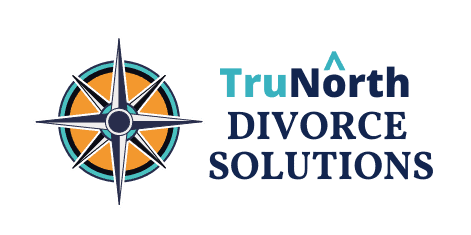by |
When going through a divorce, it’s essential to have a divorce support team to help you through what can ultimately be an exhausting process. Since getting a divorce affects multiple aspects of your life, it makes sense to have a variety of team members who can collaborate to help you create the most beneficial outcome for your divorce.
By compartmentalizing the divorce process into different roles, you can build a reliable network of people who will help you meet the obstacles you encounter when separating from your spouse. A divorce team includes your friends and family who can offer emotional support. It can also be constructive to receive psychological support from a professional therapist or counselor, so you don’t feel alone on your journey. Additionally, you will need the guidance of a mediator or an attorney-litigator for the legal side of things, a divorce financial advisor for financial support, and maybe a mortgage broker and real estate agent who specializes in divorce.
Family & Friends
Divorce is a roller coaster of emotions and the sense of being newly single can make you feel isolated; reaching out to friends and family members you can trust helps you feel like people are on your side.
It’s important to be discerning with whom you confide in for advice, though. Friends or relatives who encourage you to “take him for all he’s got” aren’t the ones you want to be listening to right now. The most beneficial approach is to find guidance from people who can help you think through everyday decisions, as well as to clarify what is most important to you in co-parenting. Be careful, however, not to overly rely on your family and friends, they’ve only got so much room for your woes.
Divorce Mediator or Attorney
For almost everyone, divorce is a complex and time-consuming process. Generally speaking, you should start by considering a mediator to help you reach a financial settlement and develop a parenting plan with your spouse. If that’s not possible, a divorce attorney may be necessary to help you navigate complicated paperwork, set terms for child support, negotiate your divorce settlement, and represent you in court.
Especially if you are dealing with an abusive situation, having legal aid also makes it easier to obtain a restraining order. All in all, having a divorce attorney on your support team will make it easier to resolve disputes and ensure y
Divorce Coaches
A divorce coach will assist you with the inevitable transitions divorce comes within a goal-oriented process that is intended to give structural and emotional support to you and your family.
Separating requires disentangling complex social, financial, and emotional aspects from you and your spouse’s life. A divorce coach can motivate you to envision the life you want to eventually lead and layout pragmatic steps to guide you there. Coaches provide a more holistic service and encompasses helping you process the divorce on a full scale.
Financial Advisors
A financial advisor on your divorce support team will help provide a better understanding of your expenses before and after the divorce. It can obviously be difficult to make sound financial decisions when engulfed in emotional turmoil.
By consulting a CDFAⓒ (Certified Divorce Financial Advisor) to understand all of your financial assets, you can ensure you receive your fair share in the divorce and have a clear picture of your financial future. They also help you plan your long-term financial goals, like getting out of debt or preparing for your retirement.
Mental Health Professionals
In some cases, even having all four of these members on your divorce support team will not be enough. It’s important to have multiple tools and practices in your wheelhouse that enable you psychologically cope with the divorce, and the most qualified person to help impart these strategies is a mental health professional.
There are various methods of therapy for how to cope with uncoupling, including individual therapy like CBT (cognitive behavioral therapy) or family therapy where a third party guides sessions that collaborate with your spouse and/or your children.
Divorce can be traumatic, and if unmitigated, can affect your life for years to come. By designing a treatment plan that benefits you, a therapist formulates a mental health roadmap that will take you from feeling overwhelmed and erratic to calm and capable of handling the obstacles of your divorce.
Divorce Support Groups & Meetups
It’s essential to make time for socializing during a divorce and connect with others who are going through the same thing. Meetups have become a popular option for divorce support groups online and provide an easily accessible platform for a wide range of support groups, free of charge.
If you belong to a church organization, you can find community-based groups that meet to work through divorce together. If going to your local church is not a safe option for you, your community library or coffee shop may offer monthly meetings where you can listen to others and share your experience in a judgment-free setting.
Divorce Websites and Apps
When divorcing with children, some courts may order the use of an app for efficient co-parenting or support payment management. If you intend on raising your kids separately, OurFamilyWizard is an app designed by a divorced couple to make this a smoother journey. An interactive calendar allows you to plan schedules and also includes an expense log for tracking shared costs.
The SupportPay app allows you to manage, track, and pay for child support or alimony, and doesn’t necessarily require both parents to use it. You can upload receipts and invoices, and see exactly what is being spent, presumably on your child.
Vesta Divorce can help If you’re at the beginning of your divorce and aren’t sure where to begin building your divorce support team. They provide a tremendous resource for information and professionals.
TruNorth Divorce is on Your Team
Hopefully, this guide will assist you as you build your own divorce support team. As you go forward, it’s best to remember this isn’t all on you; you have people in your corner that you can turn to for practical, legal, or financial advice…or maybe when you just need a hug.
In the meantime, you can find out more about the divorce process through my free downloadable ebook, or reach out to me on Facebook with your questions. TruNorth Divorce is here for your support.


